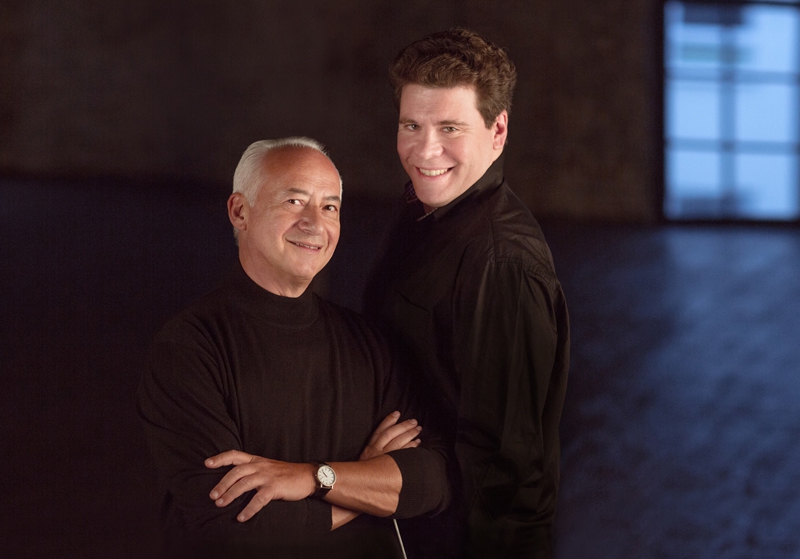April 4, 2025 | Svetlanov Hall of the MIPAC
Soloist – Denis Matsuev, piano
Conductor – Vladimir Spivakov
Beethoven. Symphony No. 7 in A major, Op. 92
Beethoven. Concerto No. 5 for piano and orchestra un E-flat major, Op. 73
Beethoven's oeuvre is an important part of the repertoire of Vladimir Spivakov and the National Philharmonic Orchestra of Russia who dedicated to the composer a subscription series some years back. The coming night's program combines the Seventh Symphony, one of the most extraordinary compositions by Beethoven who considered it to be his best one (several years later Tchaikovsky shared the view) and Piano Concerto No. 5, the most monumental opus in its genre.
The vital Seventh Symphony was composed in 1811-1812 when Europe was languishing for the victory over Napoleon, while Beethoven got reconciled with his imminent deafness and lost his dreams of his own happiness but was quite acceptive of the events going in Europe. The score of the Symphony becoming the music harbinger of the triumph, a great provision, was completed on April 13, 1812, and premiered on December 6, 1813, under the composer's baton in Vienna. In its many traits, especially in its rhythmic peculiarity, musicologists find the foretokens of the music by Stravinsky and Bartók. It is not by chance that Wagner claimed the Seventh Symphony to be an 'apotheosis of the dance itself'. In the amazing amalgam of the Symphony's thematic picture of various folk tunes, such as Slavic in Allegretto, Austrian in Scherzo, Romany-Hungarian in the Finale, and so on, one can see the symbol of the unity of nations on their way to the general victory (to which later on will bring the Finale of the Ninth Symphony with its “Seid umschlungen, Millionen!”).
The Concerto in E-flat major is known unofficially as “Emperor”. There are different versions of its name. According to the first one it was the shouting from the audience conquered by the scale of ideas and images and the grandiosity of Beethoven's music worthy of kings. In those times the “emperor” word was associated with Napoleon, and another legend said that one of French officers, attending the premiere, cried 'This is an Emperor' meaning Beethoven himself. There is also a version that the title was given by the editor Johann Baptist Kramer.
The soloist in the Fifth Concerto will be Denis Matsuev, People's Artist of Russia, constant artistic partner of Vladimir Spivakov and the NPR, whose favorite trio of composers include Beethoven, Rachmaninoff and Prokofiev. The musician's name is connected with many auspicious events and projects in Russia's cultural life; the artist has been decorated with many esteemed State awards and is heading the Public Council at the Ministry of Culture, also directing several festivals and foundations.




